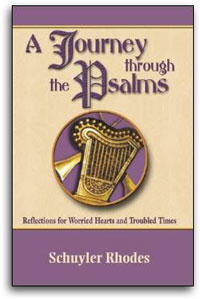SermonStudio
Psalm 98
Preaching
A Journey Through the Psalms: Reflections for Worried Hearts and Troubled Times
Preaching the Psalms Cycles A, B, C
Rolling the radio around the stations one morning during summer vacation, it became evident that there is not much of a taste for "new songs." From static to station and back again, the radio dial was alive with oldies stations. Hits from the '50s, '60s, '70s, '80s, and now even the '90s! Oldies. Each decade claims a niche of style, a series of songs that generations sing through adolescence and hopefully, into adulthood. These songs are reveled in, each one serving as a benchmark for a memory that improves in quality with the passage of time.


